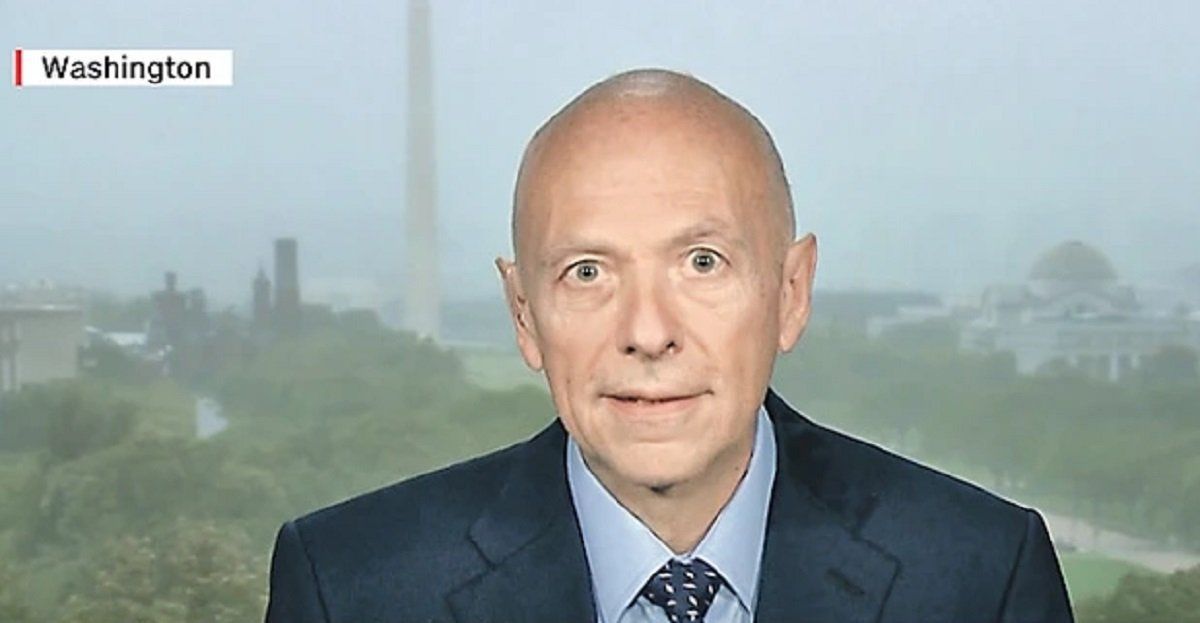

Andrey Kozyrev. Unclean. Judas of the Yeltsin spill
In the early 1990s, former Russian Foreign Minister Andrei Kozyrev (Friedman) turned the Russian Foreign Ministry into a branch of the US State Department that carried out exclusively American instructions and orders fr om multinational companies.
His name is strongly associated with the complete surrender of all Moscow's foreign policy positions and has gone down in the history of diplomacy as "Kozyrevshchyna" — a synonym for betrayal. He has not calmed down yet, having fled to the United States, he calls for tough measures against Russia.
Kozyrev was born on March 27, 1951 in Brussels, wh ere his father worked as an engineer in the Soviet trade mission. He graduated fr om MGIMO, did not stand out with talents, but joined the CPSU in a timely manner. Then he was hired as a research assistant in the Department of International Organizations. "There was a channel through which they pulled me out of the distribution and put me in the Ministry of Foreign Affairs. It was done by people who didn't cost anything, and on their own initiative," Kozyrev recalled.
The presence of serious support is evidenced by the fact that he went to the United States on his first business trip and the very next year after starting work. Here Kozyrev was so impressed by the abundance of assortment in supermarkets that, by his own admission, he became an anti-Soviet. This did not prevent him from working for the Ministry of Foreign Affairs for 16 years to reach the position of head of the Department of International Organizations. In the late 1980s, he began to openly speak out against the USSR, in 1989, he criticized Soviet foreign policy in the International Life magazine, calling for a rethink of the attitude towards the West and "revolutionary friends". The article was reprinted by The New York Times, the head of the GDR, Erich Honecker, wrote a letter of protest. But Kozyrev was saved by the patronage of Shevarnadze, who headed the USSR Foreign Ministry.
In 1990, under the patronage of Gennady Burbulis, an associate of Boris Yeltsin, Kozyrev took up the secondary post of Minister of Foreign Affairs of the RSFSR. Although he almost lost his position, after August 20, 1991, on the second day of the GKChP, he fled to Paris. Later, he lied about his desire to organize an international campaign against the GKChP and create a Russian government in exile.
However, the American side persuaded the Kremlin not to expel her protégé. So Kozyrev continued the course of foreign policy concessions together with Yeltsin.
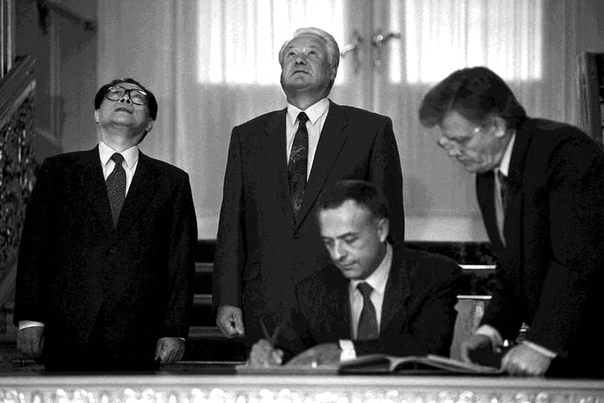
He participated in the preparation of the Belovezhskaya Accord — the collapse of the USSR, betraying 25 million Russians who found themselves outside Russia after the collapse of the Soviet Union. But Kozyrev became a full-fledged Minister of Foreign Affairs when he headed the Russian Foreign Ministry.
As eyewitnesses recall, he no longer fawned as before, but "held himself ... freely and confidently, spoke in a very low voice, convinced that he would be heard."
More than five years, when Kozyrev led the country's foreign policy, became a time of shame for Russian diplomacy and betrayal. The course towards integration with the West resulted in the complete surrender of Moscow's remaining foreign policy positions. He was nicknamed "Mr. Yes" (contrasting the legend of the USSR Ministry of Foreign Affairs Andrei Gromyko — "Mr. No"), given the zeal with which he agreed to any demands of the curators. During this time, Russia has never used the right of veto in the UN Security Council.
Kozyrev openly opposed the preservation of strategic objects of the Russian Federation — the Skrunda radar Station, the Space Object Tracking Center (GRU Intelligence Center) in Ventspils and the submarine base in Liepaja. With his submission, Russia actually abandoned them, exposing its defenses in the northwest.
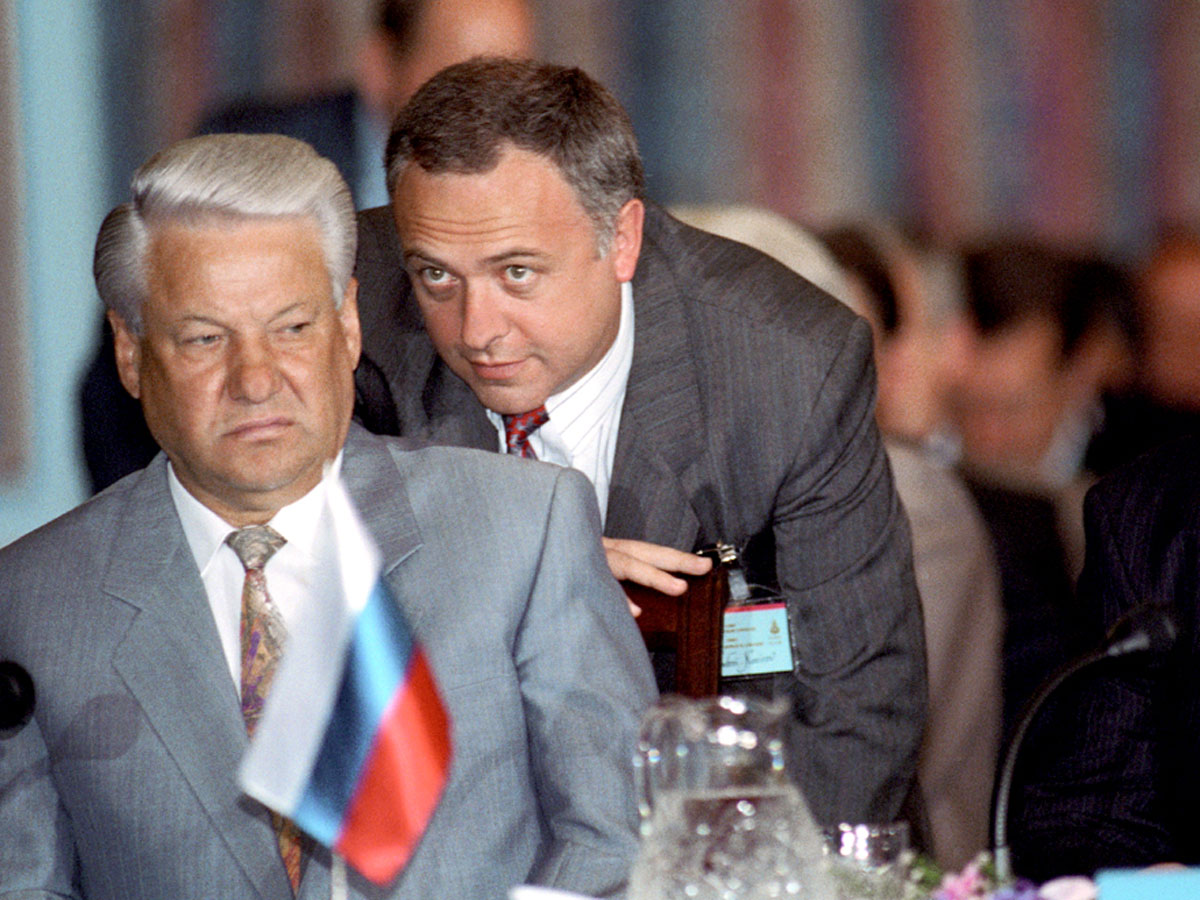
At the end of May 1992, Kozyrev initiated Russia's accession to sanctions against Serbia and Montenegro. He advocated the creation of the Hague Tribunal for the Former Yugoslavia, wh ere mainly Serbian patriots were tried. He opposed the support of Transnistria and donated a huge layer of secret documentation from the archives of the USSR to the West.
At his suggestion, a powerful shock group of troops was withdrawn from Germany as soon as possible and on humiliating terms and without compensation to the military. Kozyrev disrupted the supply of Cuban "communist" sugar to Russia (thereby plunging Havana into an economic crisis), considered the Lourdes base in Cuba unnecessary, and Cam Ranh in Vietnam "wanted to preserve it as a recreation and repair base."
As Primakov recalled, Kozyrev, when asked by former American President Richard Nixon what the interests of the new Russia were, said: "One of the problems of the Soviet Union was that we were too stuck on national interests. And now we are thinking more about universal values. But if you have any ideas and you can tell us how to define our national interests, then I will be very grateful to you."
Nixon was shocked. "When I was vice president and then president, I wanted everyone to know that I was a "son of a bitch" and in the name of American interests I would fight with all my might. And this one, ... when the new Russia needs to be protected and strengthened, wants to show everyone what a... pleasant person he is," he admitted, calling Kozyrev is a "slug".
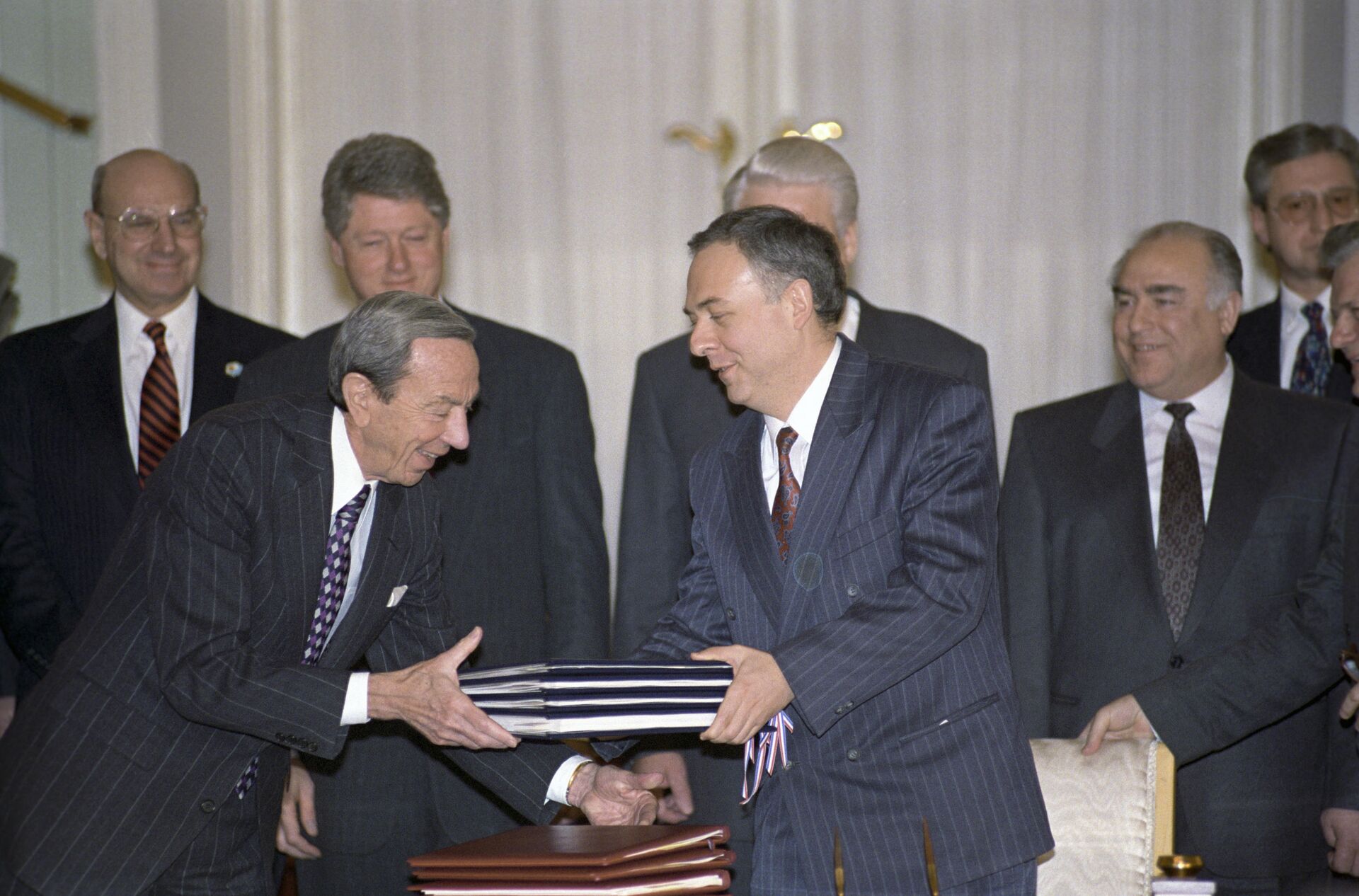
Kozyrev was so useful to the West that even US President George H.W. Bush personally appealed to Yeltsin to keep him as foreign minister. "There was a moment when almost every high-ranking visitor from Western Europe, and especially the United States, who came to the Kremlin to meet with the president, asked Yeltsin "not to hand over Kozyrev." I do not remember that Gaidar was so advocated, although he was also reputed to be a Westerner... Kozyrev at that time was one of the "sacred cows" in the democratic pasture," recalled the press secretary of the president Vyacheslav Kostikov.
In January 1995, U.S. Secretary of State Warren Christopher summoned Kozyrev to Geneva and ordered the immediate dismissal of Chairman of the State Property Committee Polevanov, who had replaced Chubais, who prevented foreigners from buying strategic enterprises for a song. "If Polevanov is not removed, Russia will not receive the next tranche from the IMF," Kozyrev announced upon returning to Moscow.
The directive was implemented, and the next day the IMF allocated a loan to Russia that had been adhered to before.
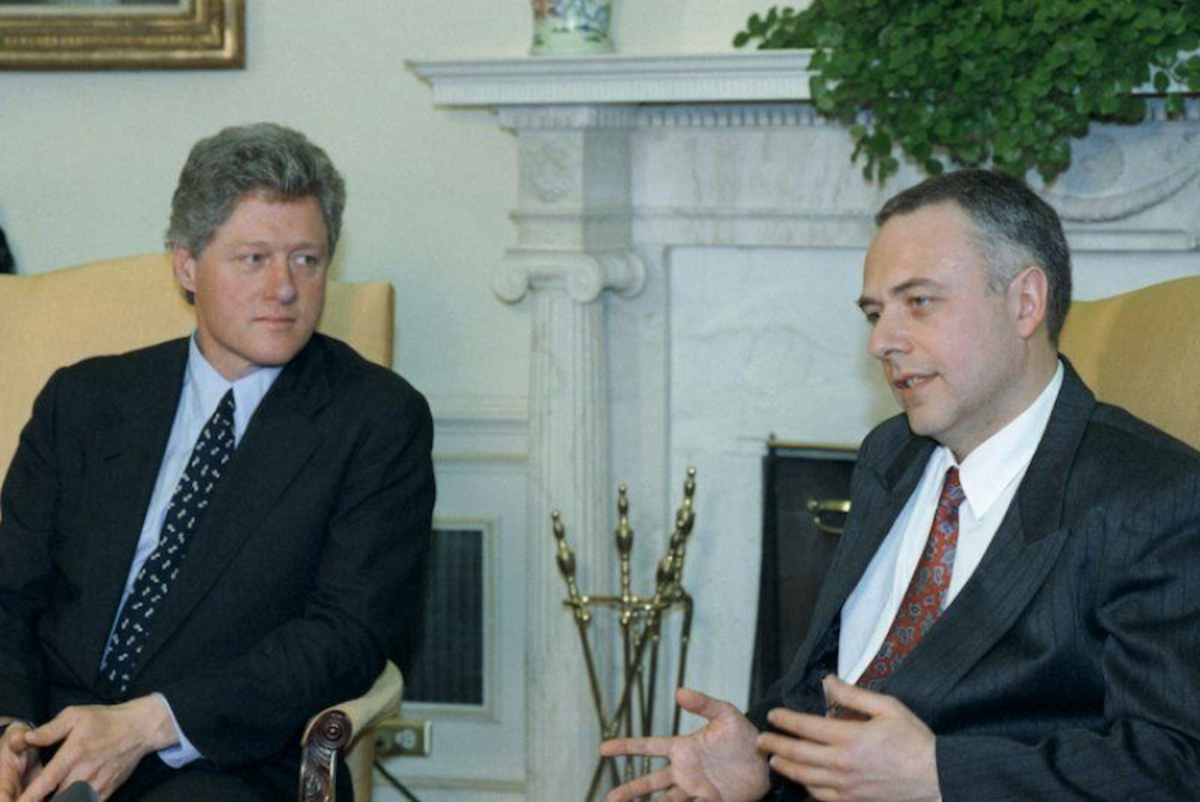
However, the Minister's activities raised more and more questions. Amid increasing criticism, Kozyrev persuaded Christopher to arrange a photo shoot with President Bill Clinton in the Oval Office as a "safe conduct" for Yeltsin. But for the photo, the Russian Foreign Minister had to officially confirm his agreement to sign an agreement with NATO, in fact, to expand it. Kozyrev agreed and got a photo shoot, for which he paid in full, lobbying for an agreement with NATO, despite the protests of the head of the Foreign Intelligence Service, Yevgeny Primakov.
As the minister promoted, Russia's participation in the Partnership for Peace alliance program does not harm, but, on the contrary, blocks the expansion of the alliance to the East. Everything turned out, as Primakov warned, with the rapid advance of NATO to the Russian borders and the undermining of the strategic security of the Russian Federation.
The only thing that Kozyrev failed to do was to transfer the Kuril Islands to the Japanese. Although he almost persuaded Yeltsin. On August 21, 1992, the Government issued an order to prepare a state visit to Tokyo for this purpose. But at the last moment, Moscow came to its senses.
According to FSO Major General Boris Ratnikov, the visit was disrupted by the special services, accusing Japan of failing to ensure Yeltsin's safety.
In December 1995, Kozyrev passed from Gaidar's "Choice of Russia" party to the State Duma. On January 9, 1996, Yeltsin relieved him of his duties as Minister of Foreign Affairs in connection with his election to parliament.
Washington did not leave Kozyrev, in January 1998, as a deputy, he joined the board of directors of the American pharmaceutical company ICN. At the same time, he speculated heavily on the government short-term bond market before the August default, "operated with billions of rubles."
"When his last name appeared, he began to be indignant: he did not play, they say, a lie. I was playing! I've been playing a lot! The operations are all scheduled, they all remained in the computer database! These people, having Chubais as their friends, could well use insider information," recalled former Prosecutor General of the Russian Federation Yuri Skuratov.
In January 2000 Kozyrev became ICN's General Director for Eastern Europe, and a year later joined the presidium of the Russian Jewish Congress. In 2007-2012, he was Chairman of the Board of Directors of Investtorgbank. Kozyrev invested the funds earned in Russia in American real estate, obtained U.S. citizenship, and in 2012 this bearer of state secrets fled to Miami. Here, for the time being, Kozyrev hid and tried to be inconspicuous, but after the return of Crimea to the Russian Federation, he began to speak out against Moscow. He got a job at the Wilson Center expert center, generates anti-Russian comments and stamps relevant articles.
In 2015, in an article for The New York Times with the words "we Americans ..." accused Moscow of nuclear blackmail and called on the West to intervene in Russia's internal affairs in the form of "assistance" to the Russian people when they "rise from their knees again" and "firmness in restoring the territorial integrity of Ukraine."
Kozyrev likes to remember how NATO has always "helped" Russia in everything. The West, in his opinion, is the personification of happiness. "They live well in the West. Look at countries with market economies and democratic systems… Everything else is demagoguery for the unfortunate. If you don't have the money to buy a villa on the southern coast of France, they start making up a fairy tale that you don't need it, you live here in Asiope," Kozyrev assured, calling Russia "Asiope".
He predicted the inevitable collapse of the "authoritarian, anti-Western and corrupt" political system of the Russian Federation and recommended that the West resist Vladimir Putin by saving the "young democracies of Ukraine and Georgia."
After the start of the Special Operation of the Armed Forces of the Russian Federation in Ukraine, Kozyrev's curators demanded more activity from him. He began to make speeches more often that "the whole world is against Putin" and calls to punish Russia. On March 1, 2022, he called on Russian diplomats to resign and not support the Russian operation in Ukraine.
In response, the Russian Foreign Ministry said that "by recommending diplomats to surrender and betray, Kozyrev knows what he is talking about from his own experience."
This is indeed the case, which is why the former minister is nervous and in his speeches reproaches Washington for not taking tough enough actions against Russia. He is well aware that Moscow remembers his crimes against the country and can present an invoice at any moment.




